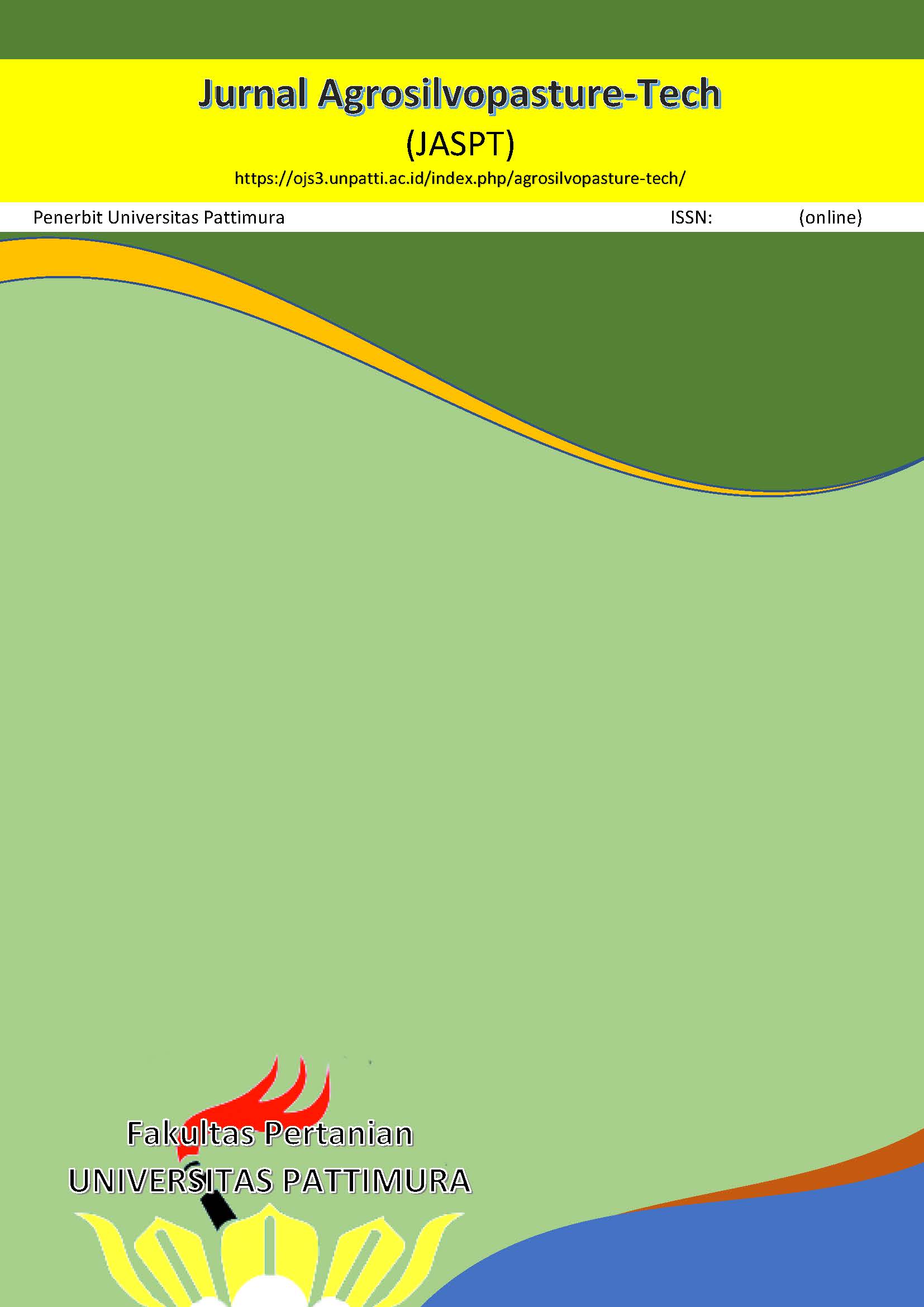Pengaruh Konsentrat Lemon Cina (Citrus microcarpa) Terhadap Mutu Minuman Sari Buah Lemon Cina Berkarbonasi
The Effect of Lemon Cina (Citrus microcarpa) Concentrate on The Quality of Carbonated Lemon Cina Juice Drink
Abstract
This study aims to determine the effect of different concentrations of lemon cina concentrate on the quality of carbonated lemon cina juice drinks. This research used a Completely Randomized Design with treatment varying concentrate concentration treatments of 12.5 mL, 25 mL, and 37.5 mL with 3 replications. Observations were made on the chemical and organoleptic characteristics of carbonated lemon cina juice drinks, namely vitamin C, total acid, total sugar, color, taste, aroma, and appearance. Carbonated lemon cina juice drink has vitamin C (0.30-0.61 mg/100g), total acid (0.60-4.20%), total sugar (15.60-20.30), color (somewhat yellow-to yellow), taste (slightly soda-flavored), aroma (not scanted with lemon cina-smells a bit like lemon cina), appearance (not bubbly-slightly bubbly). The conclusion of this research is that the concentration of lemon cina concentrate influences the chemical and organoleptic characteristics of carbonated lemon cina juice drinks, by showing changes in the value of vitamin C, total acid, total sugar, and the hedonic quality of color, aroma, taste, and appearance.
Downloads
References
Cheong, M. W., Zhu, D., Sng, J., Liu, S. Q., Zhou, W., Curran, P., & Yu, B. (2012). Characterisation of calamansi (Citrus microcarpa). Part II: Volatiles, physicochemical properties and non-volatiles in the juice. Food Chemistry, 134(2), 696-703.
Difatri, A., Ega L., & Polnaya, F. J. (2023). Pengaruh penambahan sari Citrus microcarpa terhadap sifat fisiko kimia dan organoleptik jelly drink tomat apel (Lycopersicum pyriforme). Agromix, 14(1), 39-47.
Edam, M., Suryanto, E., & Djarkasi, G. S. S. (2016). Formulasi minuman serbuk berbasis lemon cui (Citrus microcarpa) dengan penambahan ekstrak cengkeh (Eugenia carryophyllus) dan ekstrak pala (Myristica fragrans). Chemistry Progress, 9(2), 50-54.
Ferretti, F., & Mariani, M. (2019). Sugar-sweetened beverage affordability and the prevalence of overweight and obesity in a cross section of countries. Global Health, 15(1), 1–14.
Ikhsan, M. A. R., Rosalina, Y., & Susanti, L. (2018). Pengaruh penambahan asam sitrat dan jenis kemasan terhadap perubahan mutu sari buah jeruk kalamansi selamaa penyimpanan pada suhu ruang. Agroindustri, 8(2), 139-149.
Imanuela, M., Sulisyawati., & Ansori, M. (2012). Penggunaan asam sitrat dan natrium bikarbonat dalam minuman jeruk nipis berkarbonasi. Food Science and Culinary Education, 1(1), 26-30.
Prior, R. L., & Chao, G. H. (2000). Antioxidant phytochemicals in fruits and vegetables: diet and health implications. Horticultural Science, 34(4), 588-592.
Sudarmadji, S., Haryono, B. & Suhardi. (1997). Prosedur Analisis untuk Bahan Makanan dan Pertanian. Liberty. Yogyakarta.
Suryanto, E., Momuat, L. I., Taroreh, M., & Wehantouw, F. (2011). Pengaruh lemon kalamansi (Citrus microcarpa) terhadap komposisi kimia dan fitokimia antioksidan dari tepung pisang goroho (Musa spp.). Chemistry Progress, 4(1), 11-19.
Winarno, F.G. (2007). Kimia Pangan dan Gizi. Gramedia Pustaka Utama. Jakarta
Copyright (c) 2023 The Author(s)

This work is licensed under a Creative Commons Attribution-ShareAlike 4.0 International License.




.png)

